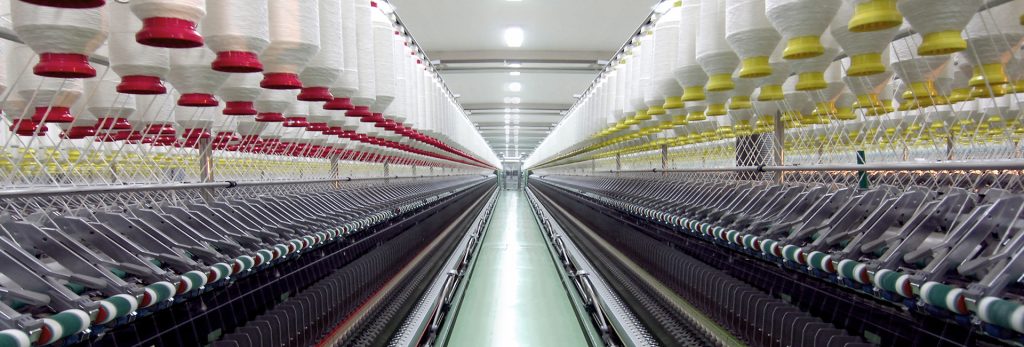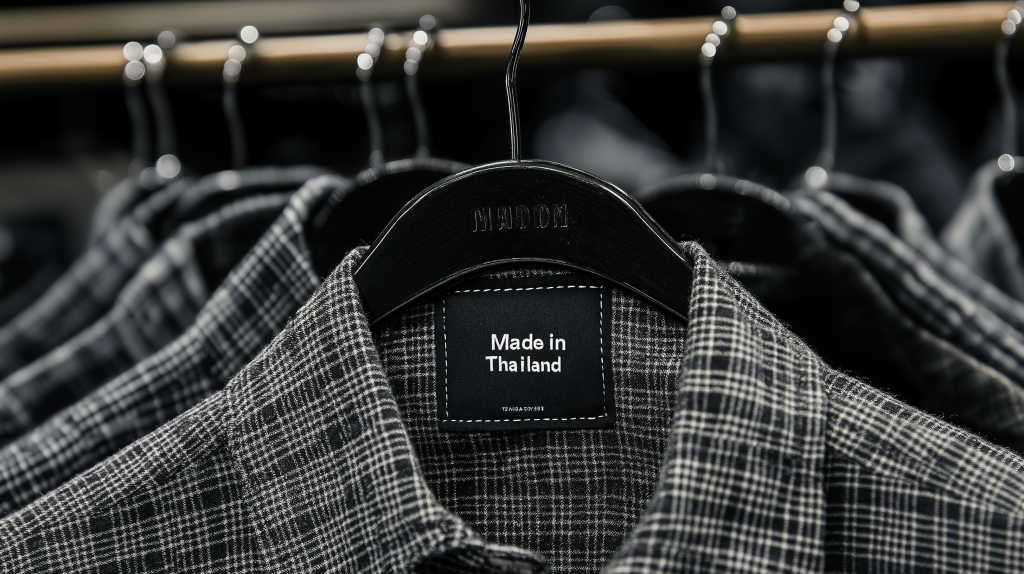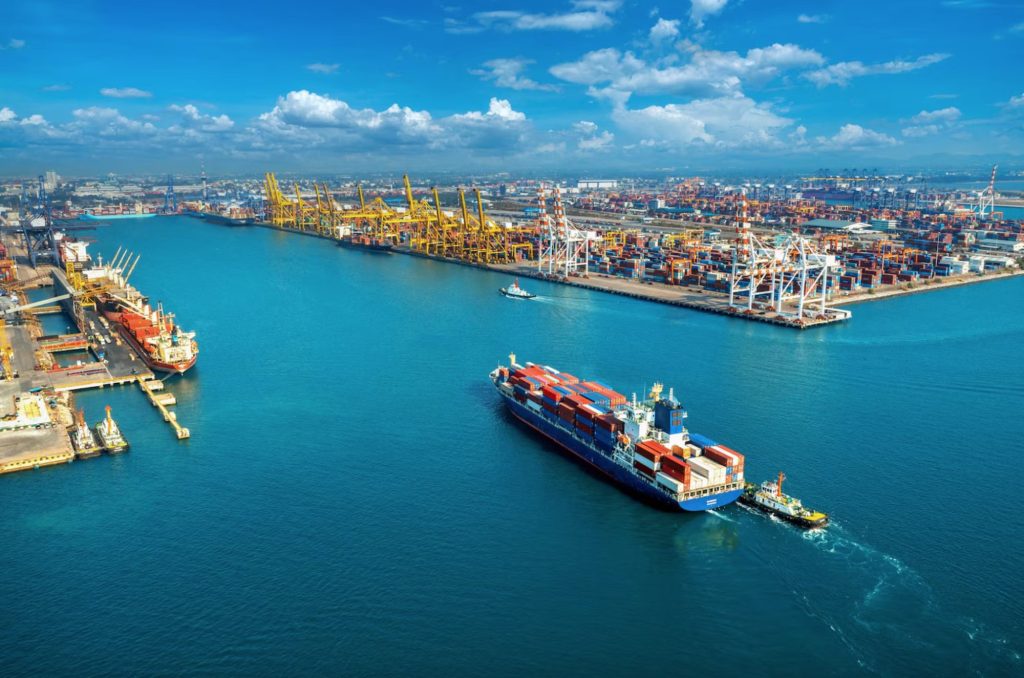TARIFF FREE EXPORTS

Maintain Supply Chain Control and Go Tariff-Free
Call now for your FREE Consultation and let us create a bespoke plan tailored to your needs:
• Future-Proof Against Tariffs: Protect your operations from escalating costs with seamless solutions.
• Preserve Supply Chain Integrity: Maintain your quality assurance processes while optimizing your supply chain.
• Integrate Finishing Services: Effortlessly add high-end finishing steps to your trusted Chinese supply chain.
• Retain Trusted Partnerships: Keep working with your established partners without disruption.
• Qualify for Tariff Exemptions: Secure a Thailand Certificate of Origin (COO) with ease.
• Expand Market Opportunities: Ensure tariff-free entry to key export markets and grow your business.
Effortless Tariff-Free Solutions Tailored to Your Supply Chain
How We Work with Your Supply Chain
• Preserve Existing Partnerships: We understand the value of your trusted Chinese suppliers and partners. Our process works alongside them, focusing solely on the finishing steps required for COO compliance.
• Integrate with Your QC Standards: Your quality control (QC) framework remains in place, with our finishing services following your established protocols. This ensures consistency in product quality while enhancing its trade potential.
• Add Strategic Value with Thailand COO: By completing the final finishing steps in Thailand, your product qualifies for a Thailand COO, giving it the advantage of tariff-free status in key export markets.

Future-Proof Your Business with our Turnkey Tariff-Free Solutions
What We Offer:
• End-to-End Setup: Establish your BOI- or Amity-certified company in Thailand with full compliance, tax holidays, duty exemptions, and tariff-free export capabilities.
• Factory Partnerships: Connect with premier Thai factories tailored to meet your finishing requirements.
• Legal & IP Protection: Safeguard your intellectual property and ensure compliance with robust local governance.
• Tariff-Free Export Solutions: Qualify for tariff exemptions by securing a Thailand Certificate of Origin (COO) for your products.
• ASEAN Market Access: Expand into the ASEAN region and tap into a growing market of over 660 million consumers.
Your trusted American partner in Thailand
American Expertise, Local Connections
As an American-owned company with operations in New York City and Chiang Mai, Thailand, we specialize in helping U.S. businesses navigate upcoming tariffs without disrupting their trusted Chinese supply chains. Since 2019, we’ve been the bridge between American innovation and Thailand’s unique strategic advantages, offering high-end finishing services that qualify your products for Thailand COO certification and tariff-free status.

FAQ: Case Study – How Chinese Garment Manufacturers Avoid Tariffs with Thailand Finishing Services
Q: What is the current challenge with tariffs, and how might it escalate under a potential Trump administration?
A: Today, U.S. companies importing garments and other goods from China are already dealing with steep tariffs, often around 25%, significantly increasing their cost of goods. Under a Trump administration, there is a strong possibility of even higher tariffs or expanded tariff categories, further driving up costs. This makes it critical for businesses to adopt proactive future proofing strategies, such as utilizing Thailand’s finishing services to qualify for a Thailand COO, bypassing tariffs and safeguarding profitability.
Q: How does using Thailand as a secondary hub help avoid tariffs?
A: By shipping Chinese-manufactured garments to Thailand for finishing, companies can modify the products to qualify as Thai-origin under U.S. trade agreements. This strategy allows them to benefit from reduced tariffs or exemptions, avoiding the higher tariffs on Chinese-origin goods.
Q: What are the cost savings associated with these finishing costs?
A:
- Direct Import from China: A $10 garment incurs a 25% tariff, adding $2.50 per unit. For 1 million units, the tariff cost totals $2.5 million.
- Using Thailand as a Secondary Hub:
- Finishing costs in Thailand: $0.50–$1 per unit.
- Reduced tariff rate for Thai-origin goods: ~0–5%, adding ~$0.50 per unit in tariffs.
- Total per-unit cost: ~$11.20, compared to $12.50 from direct China imports.
- Savings: ~$1.3 million on 1 million units.

From Thailand to the World – Tariff-Free
Q: What are the challenges of this supply chain strategy?
A:
- Regulatory Compliance: Companies must ensure that modifications meet U.S. customs’ rules of origin requirements.
- Logistics Costs: Shipping goods from China to Thailand and then to the U.S. incurs additional costs.
- Lead Times: The extra step in the supply chain could increase production and shipping times.
- Documentation: Maintaining accurate records is critical for COO verification and to avoid penalties.
Q: How does this strategy impact ROI?
A: Despite additional logistics and processing costs, the significant tariff savings (~$1.3 million on 1 million units in this case) provide a strong ROI. This makes the hybrid supply chain a cost-effective solution for companies dealing with high tariffs on Chinese-origin goods.
Q: What other benefits come from shifting operations to Thailand?
A:
- Legal Protection and IP Security: Setting up operations in Thailand provides robust legal frameworks for IP protection.
- Access to ASEAN Markets: Thailand’s location offers access to over 660 million consumers across ASEAN countries.
- Tax Incentives: Companies registered under Thailand’s BOI program can benefit from tax holidays and import duty exemptions.
Q: Is this approach suitable for industries beyond apparel?
A: Yes. While this case study focuses on garments, similar strategies can be applied to other industries, such as electronics, consumer goods, and automotive components, to leverage tariff-free exports and hybrid supply chain advantages.
Q: How can I learn more or implement this strategy for my business?
A: Contact us for a free consultation! We’ll provide tailored insights and strategies to optimize your supply chain and reduce costs using Thailand as your operational hub.

Changing Your Shipping Operations from China to Thailand
Q: Why should I consider changing my shipping operations from China to Thailand?
A: With rising tariffs and shifting global trade dynamics, Thailand offers strategic advantages, including tariff benefits under a Thailand Certificate of Origin (COO), access to ASEAN markets, and competitive shipping rates. For businesses seeking cost savings and supply chain diversification, Thailand’s strategic location and trade agreements make it an attractive alternative.
Q: How do shipping costs from Thailand compare to those from China?
A: Shipping rates from Thailand are often competitive. For instance, shipping a 40-foot container from Bangkok or Laem Chabang to major U.S. ports typically costs between $1,200 and $2,000, comparable to or slightly lower than rates from ports like Shanghai or Shenzhen, depending on the route and current market conditions.
Q: Are there any infrastructure differences between Thai and Chinese ports?
A: Yes, major Chinese ports like Shanghai and Shenzhen are among the largest and busiest globally, offering extensive capacity and advanced facilities. Thailand’s Laem Chabang Port is the country’s main deep-sea port, with significant capacity and modern facilities, while Bangkok Port is smaller with draft limitations that may restrict access for large vessels. For high-volume operations, Laem Chabang is recommended.
Q: Will I face additional costs when switching to shipping from Thailand?
A: There could be additional costs related to integrating new logistics and adjusting your supply chain operations, such as:
• Transporting goods from China to Thailand for finishing (if part of your supply chain remains in China).
• Import/export duties, though Thailand’s lower VAT (7%) may offset some costs.
• Initial setup costs for establishing operations in Thailand.
However, these costs may be outweighed by savings from reduced tariffs and streamlined ASEAN market access.
Q: How do transit times compare between China and Thailand?
A: Transit times are comparable but depend on the destination:
• From Thailand to the U.S.: Approximately 25–30 days by sea.
• From China to the U.S.: Typically 18–25 days by sea.
The difference is minor and can be mitigated by efficient port operations in Thailand.
Q: What are the potential challenges of switching to Thailand for shipping?
A: Potential challenges include:
• Adjusting to new regulatory requirements for Thai exports.
• Managing supply chain shifts if some production remains in China.
• Urban congestion at Bangkok Port, which could affect turnaround times (though Laem Chabang Port mitigates this issue).
Q: Will my goods qualify for tariff exemptions with a Thailand COO?
A: Yes, completing the final finishing steps in Thailand can qualify your products for a Thailand COO, allowing you to benefit from reduced or zero tariffs in many export markets, including the U.S., under specific trade agreements.
Q: What is the overall benefit of moving shipping operations to Thailand?
A: Moving operations to Thailand can reduce tariff costs, diversify supply chain risks, and provide access to growing ASEAN markets. While there may be an initial adjustment period and setup costs, the long-term savings and strategic advantages often outweigh these challenges.
Q: How can I get started?
A: Start by assessing your supply chain to determine how Thailand’s finishing services and shipping infrastructure fit your needs. Partnering with an experienced logistics provider or supply chain consultant can simplify the transition and ensure compliance with Thailand’s export regulations.
Unlock Exclusive Business Advantages for U.S. Companies in Thailand
Understanding Amity and BOI Companies:
Q: What is an Amity company?
A: An Amity company is a business entity established under the U.S.-Thailand Treaty of Amity. This unique treaty allows American companies to own up to 100% of their business in most sectors in Thailand, bypassing restrictions of Thailand’s Foreign Business Act.Q: What is the history of the U.S.-Thailand Treaty of Amity?
A: The Treaty of Amity and Economic Relations, signed in 1966, was created to promote economic cooperation between the U.S. and Thailand. It provides exclusive benefits to U.S. businesses that are unavailable in any other country, making Thailand uniquely accessible to American entrepreneurs and investors.Q: What are the opportunities for U.S. companies under the Treaty of Amity?
A:
- 100% Ownership: Full control over your business in most industries.
- Ease of Market Entry: Simplified setup and legal processes.
- Tax and Operational Advantages: Ability to operate as a local company while enjoying benefits of a foreign investor.
Q: What is BOI, and how does it benefit businesses?
A: The Board of Investment (BOI) is a Thai government agency that offers incentives to attract foreign investment. BOI certification provides significant benefits for businesses in targeted industries.Q: What are the advantages of BOI promotion?
A:
- Tax Holidays: Corporate income tax exemptions for 3–8 years.
- Import Duty Exemptions: On machinery and raw materials used in production.
- 100% Foreign Ownership: Allowed in industries promoted by BOI.
- Work Permits and Visas: Streamlined processes for foreign staff.
- Land Ownership: Permission for foreign companies to own land.
Q: What types of businesses qualify for BOI incentives?
A: Industries such as manufacturing, technology, logistics, healthcare, and renewable energy are among the key sectors promoted by BOI.Q: How can I determine which option is right for my business?
A: Contact us for a free consultation, and we’ll help you assess whether Amity certification or BOI promotion best fits your goals.
Unlock the Benefits of Doing Business in Thailand